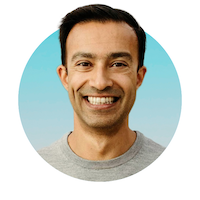How Do You Know If You've Achieved Product/Market Fit?

Marc Andreessen initially introduced the concept of product/market fit in this post published in 2007. It was an incredibly helpful notion to explain why startup products were failing left & right as well as provided a guiding north star on what you ultimately needed to achieve to build a successful startup.
Optimize For Passion/Skill/Opportunity Fit

I've noticed that those that ultimately find satisfaction from their careers end up optimized for passion/skill/opportunity fit. They've been lucky enough to find the intersection of work they are passionate about, work they are skilled at, and work that has ample market opportunity. For those early in their careers or who have not yet found such satisfaction, I wanted to share how optimizing for passion/skill/opportunity fit can help you to ultimately find your dream job.
The Hunt for Product/Market Fit
The hunt for finding product/market fit in an early-stage startup is an elusive one, often fraught with chaos, and certainly never easy. I've led the hunt for product/market fit in 3 startups that I co-founded and also had the opportunity to do so for 3 new products launched at established tech giants LinkedIn and Microsoft. Most recently, in advising 5 early-stage startups, I have been helping other founders through their respective hunts.
I put together this presentation to share a framework I've leveraged in my own startups as well as now in those that I'm advising to bring some much-needed discipline to the hunt for product/market fit. While there is certainly no silver-bullet, I do find that leveraging an iterative cycle of defining, validating, and iterating on each of your most critical product/market fit hypotheses is a sure-fire way to bring some predictability to the process and provide guidance on whether your team is getting closer or farther from the ultimate goal. I hope some of the best practices I detail in the deck can be helpful for your team as well.
How to be an Infinite Learner

One of the characteristics Reid Hoffman often mentions he values in great entrepreneurs is that they are infinite learners. Those who possess this quality are constantly expanding their expertise to new domains, regularly overcoming their own shortcomings, and their capacity for taking on new challenges seems limitless. Mark Zuckerberg is frequently cited as an infinite learner who has grown immensely in his ability to lead Facebook’s now 10,000 person organization and shape a product experience that touches over a billion people daily. In the world of technology where absolutely all the rules are constantly being re-invented, being an infinite learner has become a critical skill to the survival and longevity of great leaders and their organizations.
Bringing Emotional Intelligence to Your Product Design

Today's best products not only solve a clear pain point, but do so while understanding, eliciting, and amplifying the emotions of the consumer. The gold standard of this is Apple, whose products are not only useful, but delight us, surprise us, amaze us, and elicit incredible emotional responses. Yet designing such products is no easy task, requiring product designers to bring deep emotional intelligence into their product and product design process. I wanted to share some examples of products that do this well as well as techniques to bring such emotional intelligence into your own product design.

